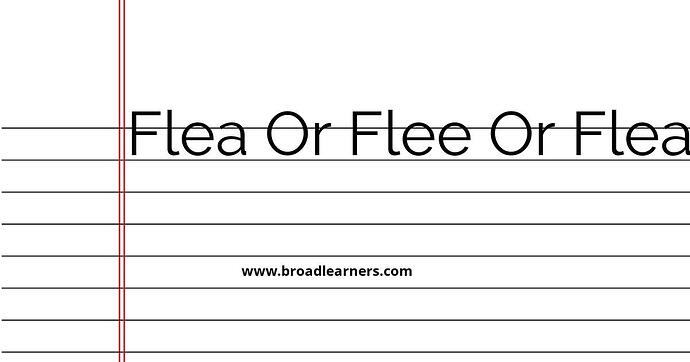'Flea', 'flee', and 'flea' are commonly confused words in English grammar. Understanding the difference between 'flea', 'flee', and 'flea' is important to use them correctly in written and spoken English.
'Flea' is a noun that refers to a small, wingless, blood-sucking insect that infests mammals and birds. It is known for its ability to jump long distances.
'Flee' is a verb that means to run away or escape from a dangerous or threatening situation. It is used to describe the act of quickly leaving a place or situation.
'Flea' is a verb that means to remove or get rid of fleas from a person, animal, or place. It is used to describe the action of eliminating or treating a flea infestation.
Let's take a closer look at the meanings and usage of 'flea', 'flee', and 'flea'.
| 'Flea' | 'Flee' | 'Flea' |
|---|---|---|
| The word 'flea' is a noun that refers to a small, blood-sucking insect that infests mammals and birds. | The word 'flee' is a verb that means to run away or escape from a dangerous or threatening situation. | The word 'flea' is a verb that means to remove or get rid of fleas from a person, animal, or place. |
|
|
|
To remember the difference between 'flea', 'flee', and 'flea', it can be helpful to remember their distinct meanings and usage:
- 'Flea' is a noun and refers to a small, blood-sucking insect.
- 'Flee' is a verb and means to run away or escape from a dangerous situation.
- 'Flea' is a verb and means to remove or get rid of fleas.
Here are some examples of correct usage:
- I need to treat my dog for fleas because it has been scratching a lot.
- They decided to flee the city before the hurricane hit.
- We need to flea the house to get rid of the infestation.
Remembering the correct usage of 'flea', 'flee', and 'flea' will improve your grammar and communication skills.
